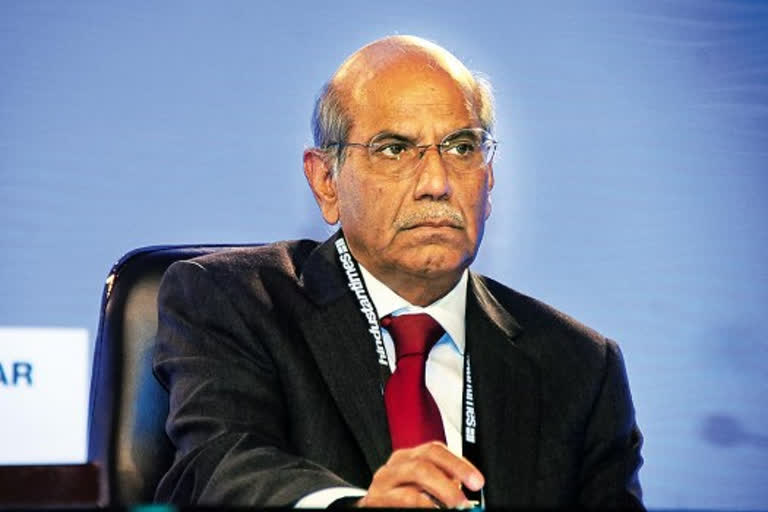New Delhi: India must take its two-year term as an opportunity to display leadership and to revive its traditional faith and commitment to multilateralism. Its approach should be pro-active and imaginative not defensive and common-place, India’s ex-envoy and former Foreign Secretary Shyam Saran told ETV Bharat as the country is all set to begin its two-year tenure as the non-permanent member in the powerful organ of the world body-United Nation Security Council (UNSC) on 1st Jan 2021.
Speaking exclusively to ETV Bharat, India’s ex-envoy Shyam Saran said, “India will be taking its place as a non-permanent member of the UNSC at a very critical moment in world history. The COVID-19 pandemic continues to rage across the world and though it is encouraging that we now have effective vaccines available, their distribution among a large number of poorer and developing countries demands international collaboration”.
The phase of post-pandemic recovery will be another challenge, in particular, how to ensure that the gains we have made in poverty eradication in many developing countries are not lost. And there is the bigger and looming crisis of Climate Change for which only an ambitious global response anchored in the principle of equity will meet an existential threat to humanity, Saran added.
He says only multilateral approaches through empowered international institutions of governance will enable us to meet these critical changes. “This will require statesmanship and the ability to mobilise international efforts towards these ends. India must take its 2-year term as an opportunity to display leadership and to revive its traditional faith and commitment to multilateralism. Its approach should be pro-active and imaginative not defensive and common-place”, he stated.
ALSO READ: India outlines priorities for UNSC seat campaign
India has time and again reiterated its stance on reformed multilateralism, effective global governance at various global fora. Beginning January 1, India will sit in the 15th nation United Nations Security Council for the 2021-22 terms as a non-permanent member-the eighth time that the country has had a seat on the powerful table.
Many analysts believe that for India, these two years would be a challenging year and India will be focusing on a comprehensive approach to peace and security, new opportunities for progress, effective response to terrorism globally, reforming multilateral systems and technology with a human touch.
Foreign policy expert and senior fellow at ORF Sushant Sareen said, “India is joining the UNSC at a very critical time in international politics, after fall of the soviet union almost 30 years later. This is a very critical time to be the member of the UNSC but I think, India needs to have some clarity on how it wants to proceed in the next two years as a member of the UNSC”.
‘Talking about reformed multilateralism, we don’t how that is going to play out because as far as permanent members are concerned, India has four on its side-France, Russia, UK, the US and China is going to be reconcilable. And the new international politics is going to revolve around the US-China rival, so clearly it’s hard to say what kind of reforms are likely to come about. Apart from that, India’s tenure for the next two years in UNSC is going to be critical because it will also set the direction of India’s foreign policy. Will India continue to stand on the sidelines or as bystanders or adopt the neutral position India has taken in the past which are contradictory in many ways? Or will the country start taking sides to maximize its interest? And I think that is the critical question going forward in the next two years”, he added.
“Will India continue to stand on the shibboleth of strategic autonomy or will do what it thinks will maximize our national interest and not hesitate to get into alliances or partnership with other bigger powers like the US or energise the international agreement like Quad, play a different game when it comes to great power politics then what India has been doing in the past that remains to be seen. It is perhaps the most critical time in terms of international relation after 1991 when the Soviet Union had collapsed and the cold war was over. Now we are in the cusp of a new cold war, so clearly the next two years are going to set the direction of the world”, Sareen points out.
“India, of course, has its priorities including the national security to plug out at the UNSC but I think even more critical will be the much larger strategic game which is going to define India’s international politics and international relations are going to play out over the next couple of decades. We will have to see how India moves forward in the UNSC”, he explains.
ALSO READ: Estonia to push for transparency on COVID-19 in UNSC: Envoy



